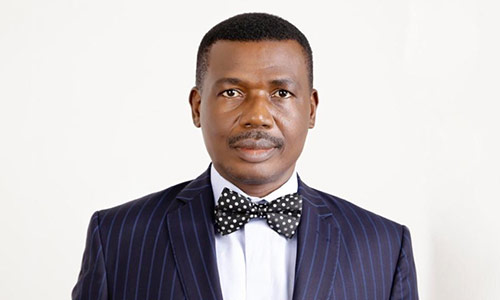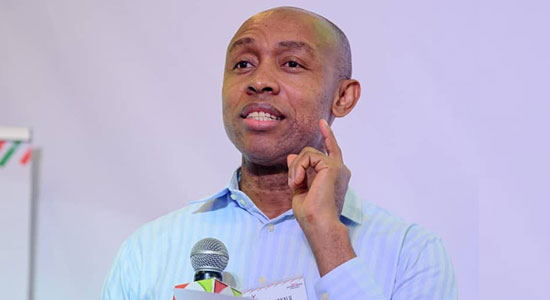Politicization Of Election Disputes In Nigeria’s Courts (3)

By Ebun-Olu Adegboruwa, SAN
Strict Compliance Requirements
By the recent judgment of the Presidential Election Petition Tribunal (PEPT) and ruling of the Supreme Court on the PDP’s presidential candidate’s application to present fresh evidence to disqualify President Bola Ahmed Tinubu on the allegation of forgery, the hands of the judiciary remains tied against the time frame within which any specific procedural requirement can be made. Thus, regardless of the grave constitutional matter that surrounds certificate forgery, the Apex Court again reiterated the current position of the law which is to the effect that “The time fixed by the Constitution for the doing of anything cannot be extended. It is immutable, fixed like the rock of Gibraltar. It cannot be extended, elongated, expanded, or stretched beyond what it states.” The constraint therefore would be that even if a candidate in a live broadcast confesses to being disqualified by the Constitution, such confession cannot be used or brought against him for the nullification of his election. Surely this encourages the desperation to commit all forms of election malpractices while putting the petitioner on a run against time. Technicalities are thus exploited as a strategic tool to delay the resolution of election petitions on the merits. The only conclusion therefore is that the judiciary is no longer the last hope for resolution of substantive disputes in election petitions. The grave danger with applying the rules of technicality to determine election petitions is that it obscures the main issue brought before the Court.
Lack of Specialized Training for Judicial Officers
Effective adjudication of election petition matters requires a deep understanding of electoral laws and procedures. However, not all judicial officers may have specialized training in this field. This lack of expertise can contribute to misinterpretations of legal provisions, and avoidable indiscretion of judicial officers leading to inconsistent judgments and exacerbating the challenges faced by parties involved in election petition matters. In the recent decision of the Kano State Governorship Appeal Court, despite the significant inconsistencies in the lead judgment, the two members of the panel of judges had agreed to the lead judgment and emphatically noted in their contribution that they had indeed read the lead judgment and agreed with the findings and pronouncement therein, inclusive of the inconsistencies therein. The claim of typographical error would ordinarily fly if the two other members of the panel of judges had also given their own distinct and full judgment to dispel any reasonable or malicious doubt.
The courts must therefore pay attention to the present reality and ensure that the people’s yearnings are met through the instrumentality of the law and not sacrifice justice on the altar of technicalities. During the last election petition between the PDP, LP and APC, the Supreme Court rejected Labour Party’s witnesses under subpoena on the ground that their witness statements on oath were not frontloaded. I find this not too palatable. This is because a witness on subpoena is a witness of the court. Thus, for the apex court to hold as such, considering the barriers surrounding these special witnesses, then true justice may still be far off.
TECHNICAL JUSTICE
For non-lawyers, no reasonable meaning can arise from any system that closes its eyes to naked truth. In law however, the issue of due process is sacrosanct to judicial adjudication. This principle was developed in the celebrated case of Gabriel Madukolu & Ors. v Johnson Nkemdilim & Ors. (1962) 1 ALL NLR. In that case, the Supreme Court was confronted with the issue of res judicata in the determination of the appeal which was on declaration of title to land. The apex court made the following notable pronouncements which have since become the Bible on the issue of jurisdiction in Nigeria and indeed the pillar of technicality.
“Before discussing those portions of the record, I shall make some observations on jurisdiction and the competence of a court. Put briefly, a court is competent when:
(1) it is properly constituted as regards numbers and qualifications of the members of the bench, and no member is disqualified for one reason or another; and
(2) the subject matter of the case is within its jurisdiction, and there is no feature in the case which prevents the court from exercising its jurisdiction: and
(3) the case comes before the court initiated by due process of law, and upon fulfilment of any condition precedent to the exercise of jurisdiction.
Any defect in competence is fatal, for the proceedings are a nullity however well conducted and decided: the defect is extrinsic to the adjudication.”
To truly appreciate the gravity of this issue, technicality simply means you have a good case which if presented in a bad way, you will be denied justice by the Court. For example, the federal government through the Economic and Financial Crimes Commission claimed to have a good case against the former governor of Abia State, Dr. Orji Uzo Kalu and others, whereupon a charge was filed in court and the case went to trial and judgment. However, there was a procedural issue raised by the defendants in that the judge who delivered the judgment was not competent to do so as he had been elevated to the Court of Appeal at the time of the conclusion of the case. The Supreme Court wasted no time in setting aside the judgment based on criteria No.1 set out in the Madukolu’s case supra. Recently, another case arose that tested our democratic journey to the breaking point, when the former Senate President, Dr. Ahmed Lawan found his name on the INEC list for Yobe State senatorial election, after his failed bid to clinch the presidential ticket of his party. His nomination was challenged in court and the reasonable expectation was that based on the provisions of the Electoral Act, he would be disqualified. At the Supreme Court, the focus was on criteria No. 3 in Madukolu’s case supra, whether the case against Dr. Lawan was initiated following due process of law. In that case, the apex court dwelt on the propriety of adopting the procedure of originating summons to determine a case in which allegations of fraud were made. In an attempt to fast-track pre-election cases, the Honourable Chief Judge of the Federal High Court had issued a practice direction that such cases be commenced by way of originating summons. In a case that breathed pure technicality, the Supreme Court held that originating summons cannot be deployed to commence an action involving allegation of fraud and irreconcilable conflicts among other things, meaning that the Court was without jurisdiction to look into the case against Dr. Lawan, even though he was patently unqualified. The Court further clarified that the dispute in the case was one that cannot be resolved without oral evidence, especially in proving allegations of fraud. That way, Dr. Lawan was able to contest the election and he is now sitting as and performing the functions of a senator of the federal republic.
In another intriguing case, His Excellency Mr. Peter Obi was sworn in as the Governor of Anambra State on 17th March 2006 after he had successfully challenged the swearing in of Dr. Chris Ngige as the Governor of Anambra State of Nigeria. When INEC sought to conduct elections in 2007, he asserted that he had not served his four-year term and the Supreme Court decided in his favour. Also in the case of ACTION CONGRESS & ATIKU ABUBAKAR v INEC, the 2nd Appellant, who was the incumbent Vice-President of Nigeria was disqualified by the Respondent from contesting the election on the presidential run due to the gazette indicting him. The 2nd Appellant challenged the power of the respondent to disqualify him and the Supreme Court upheld this. See also the decisions in DAPIANLONG v DARIYE, A.G. LAGOS STATE v A.G. FEDERATION, ADELEKE & ORS v OYO STATE HOUSE OF ASSEMBLY, to mention but a few. Likewise, we have had a series (and still ongoing) of cases by Election Tribunals nullifying various elections. The aforementioned cases serve as an example of the crucial part the judiciary has played in preserving the rule of law, protecting our justice system, and fortifying our democracy. The role of the judiciary as a tool for social and democratic engineering must be understood by those who hold the office of judge or magistrate. Even if we recognize that the judiciary is changing its image, a few rotten apples serve as a constant reminder that the fight to restore integrity at the Bench has not yet been fully won.
CONCLUSION
It is left for the National Assembly to amend the Electoral Act 2022 to give us transparent elections. We cannot continue in this fashion. “The use of technology is to prevent manipulation of election results. Just as Federal High Court judges are always sponsored to go on judges training and retreat in respect of handling AMCON (Asset Management Company of Nigeria) matters, the justices of the appellate court ought to be sponsored on international conferences/ training on election petition matters.
I finally urge INEC to help Nigeria by keeping its guidelines and public statements and undertakings. The National Assembly should set up a special committee to scrutinize the judgment of the Court of Appeal and the Supreme Court for the purpose of amending the Electoral Act 2022.


